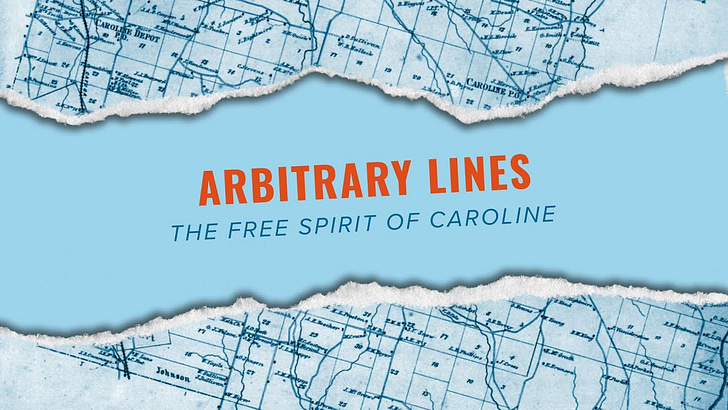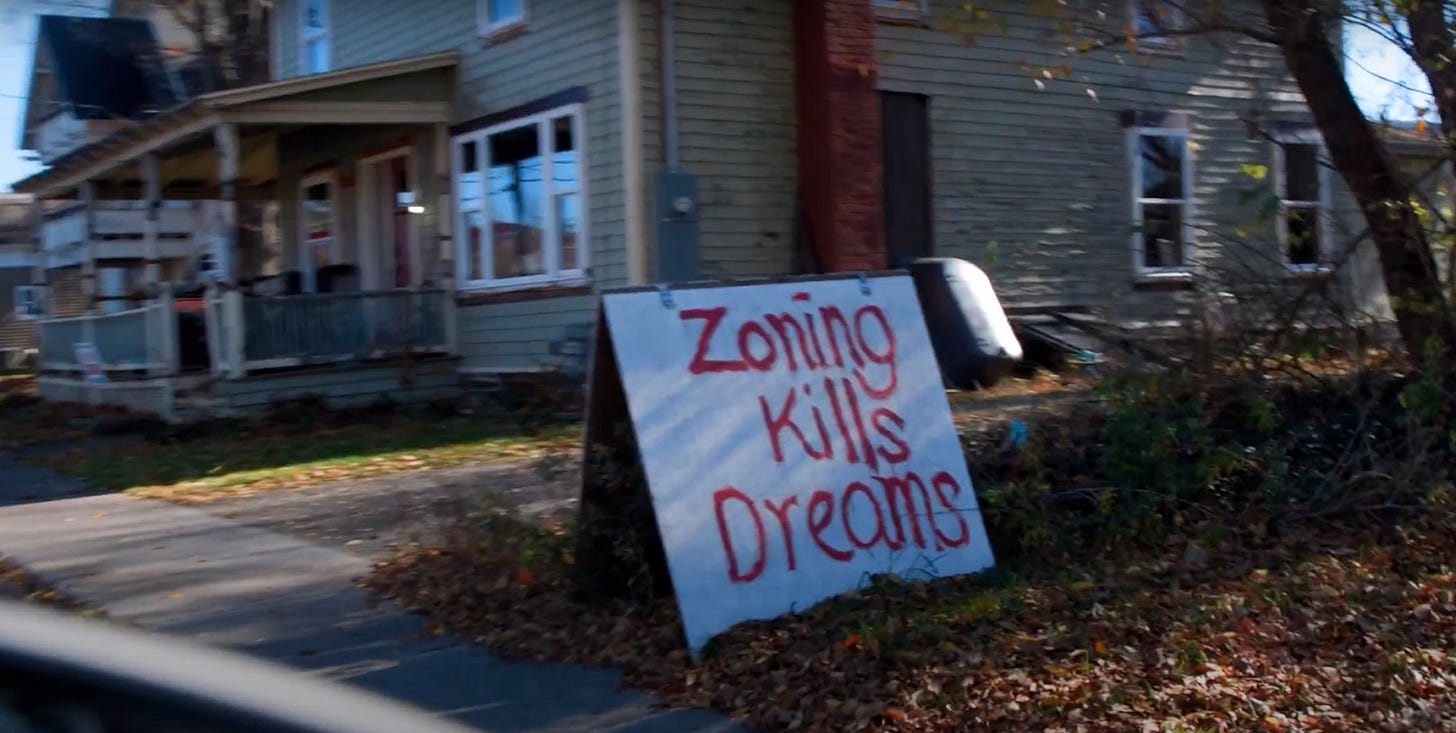Arbitrary Lines
Nolan Gray’s film on Caroline, NY is a time-capsule study on the harms of zoning takings
The town of Caroline is anachronistic compared to its mother state of New York, which is famous for leviathan bureaucracies, complex governing systems, and modern machine politics.
In Nolan Gray’s new movie Arbitrary Lines: The Free Spirit of Caroline, the place couldn't feel farther from Gotham. It’s a country setting with what appears to have no bureaus, minimal governing systems, and a whole mess of individuals acting, well, individually.
Caroline is as country as New York gets. It looks like it woke up from a coma and missed the 1927-present zoning era. In fact, The 200-square-mile working-class community has never had zoning.
So, when zoning was recently proposed, it sparked a predictable backlash. The film, which is comedic at times, documents those events.
Arbitrary Lines premiered at the 2023 Better Cities Film Festival in Detroit and serves as a helpful study on multiple policy questions, none more qualifying than this one:
Why do people who don’t have zoning fight to prevent it?
It doesn't take long for the film to establish that zoning prohibits a culture of scrappy entrepreneurship and elasticity. Elasticity, the ability to ebb and flow with the chaotic realities of markets, is a pre-requisite to success in non-wealthy farm communities.
A 7th-generation farmer knows that yesterday’s dairy farm is today’s cattle farm and tomorrow’s agritourism business. Every application, fee, and special permission required to shift business models increases the risk of bankruptcy. The 7th generation farmer is keenly aware of these risks. You don’t know what risk feels like until you have to carry the burden of not failing your great great great great grandfather.
History shows that new zoning codes consistently and inappropriately overregulate innocuous uses. Codes require special permissions (through variances, rezoning, or amendments) for historically non-controversial improvements.
The process of zoning subjects the applicant to an often-distressed discretionary review by non-vested, non-representative neighbors, who are rarely professionals and who frequently have their own unrelated agendas to propagate at the applicant’s expense.
“We deny your variance because we don’t want to give it to everybody” is the common excuse.
Such responses perpetuate simultaneous death spirals that continue harmful codes and calcify a city’s ability to fix those same codes.
If historicism is the unfair judgment of yesterday’s people by today’s standards, then Caroline, New York is an exercise in presentism: judging today’s people by yesterday’s standards.
Here, residents are clearly concerned that zoning is a broad-brush bureaucracy, untuned to the realities of its rural life, with untold costs of conformity triggering perceived catastrophic risk to its prospective subjects.
An anecdotal case study in the movie stands out. A single code provision, common in latter-day planner dogma, requires parking to be prohibited in front of a house. As is typical of central planning, it misses the critical caveat of transect-based coding that context matters. This “parking in the rear is better” principle should only apply to urban fabric, of which there is none in Caroline.
As written, the parking stipulation would require this citizen’s large-lot event facility to ruin its pastoral views by parking all the patron’s cars smack in the middle of the event space.
“Sorry, them's the rules” is the presumed response, which the owner finds terrifying. The new rules would literally ruin his business. What guarantee would he have of relief?
The movie, like the town, is a parade of these stories. Caroline is filled with citizens fearful of the overreach of zoning, property rights abolitions, and the inevitable encroach of bureaucracy.
An anti-zoning sign in front of a historic home that, under most planning regimes, would likely 1) qualify for landmarking and 2) be illegal to build today.
Nolan Gray has presented an unusual subject for a zoning talk. The arena for us urbanist nerds ain’t upstate New York, and Caroline is gun-firing, government-skeptic country folk. But the message is real and valuable across time and place.
In this sense, Caroline is the perfect research control: a happy, modest community built upon local values, distributed property rights, and limited governance. What does it tell us when they clearly see zoning as a threat to it all.
Arbitrary Lines is a film that premiered at the Better Cities Film Festival in Detroit. It is produced by and stars Nolan Gray of California YIMBY, who authored a book under the same name.






